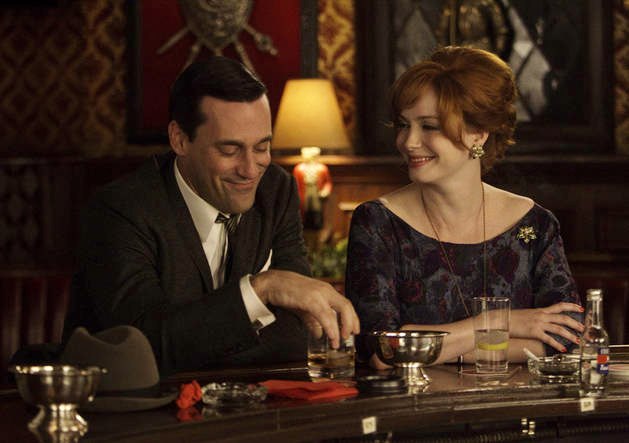By providing your information, you agree to our Terms of Use and our Privacy Policy. We use vendors that may also process your information to help provide our services. This site is protected by reCAPTCHA Enterprise and the Google Privacy Policy and Terms of Service apply.
Christina Hendricks on the ‘Catwalk’ of ‘Mad Men’ and Not Needing a Happy Ending


Christina Hendricks is one hot ticket. As “Mad Men” gets ready to fade into the television landscape, the woman who made Joan her own has been taking roles in the film world left and right: In the last few years alone, she’s co-starred in fellow “Mad Men” star John Slattery’s “God’s Pocket,” Ryan Gosling’s directorial debut “Lost River,” Gillian Flynn’s follow-up to “Gone Girl,” “Dark Places,” and she’s currently filming Nicolas Wynding Refn’s “The Neon Demon” opposite Keanu Reeves. With all those film roles, who needs TV?
Hendricks, that’s who. Even after eight years on “Mad Men,” Hendricks isn’t ready to say goodbye to the medium that helped break her onto the scene just yet. She starred opposite Luke Wilson in the Cameron Crowe pilot, “Roadies,” a hotly-anticipated dramedy at Showtime that’s still awaiting a series order.
With that talent involved, it’s hard to imagine them saying no, but Hendricks will be fine even if they do. The five-time Emmy nominee has put herself in a great position for the future, even if everyone else is still very focused on her present. Indiewire sat down with Hendricks (and a gaggle of other reporters) to get the scoop on her final season as Joan, what’s been her favorite part of playing an early-era feminist and, of course, those clothes.
READ MORE: Review: ‘Mad Men’ Season 7 Episode 9 ‘New Business,’ or ‘Ghosts of Exes Past’
What was your favorite arc for Joan over the years?
I look at it as a whole big trajectory, really, but certain storylines [stand out]. Obviously, I always loved the Joan/Roger [relationship], seeing what was going to happen between them. And the way Peggy and Joan bounce between hardly being able to tolerate one another to admiring one another and giving each other advice, I always loved that. I mean those are obviously her big, long, ongoing [storylines], and her rising in the ranks at work. I just really loved seeing her year after year becoming a very richly-written character. When I started playing her in Season 1, I thought, “Oh, what a fun, bitchy, sassy girl I get to play!” And I would never call her that now, you know? So I guess I just enjoyed watching her go through very real and human things and learn from them and grow from them and become a much wiser character and woman by the end.





By providing your information, you agree to our Terms of Use and our Privacy Policy. We use vendors that may also process your information to help provide our services. This site is protected by reCAPTCHA Enterprise and the Google Privacy Policy and Terms of Service apply.

















